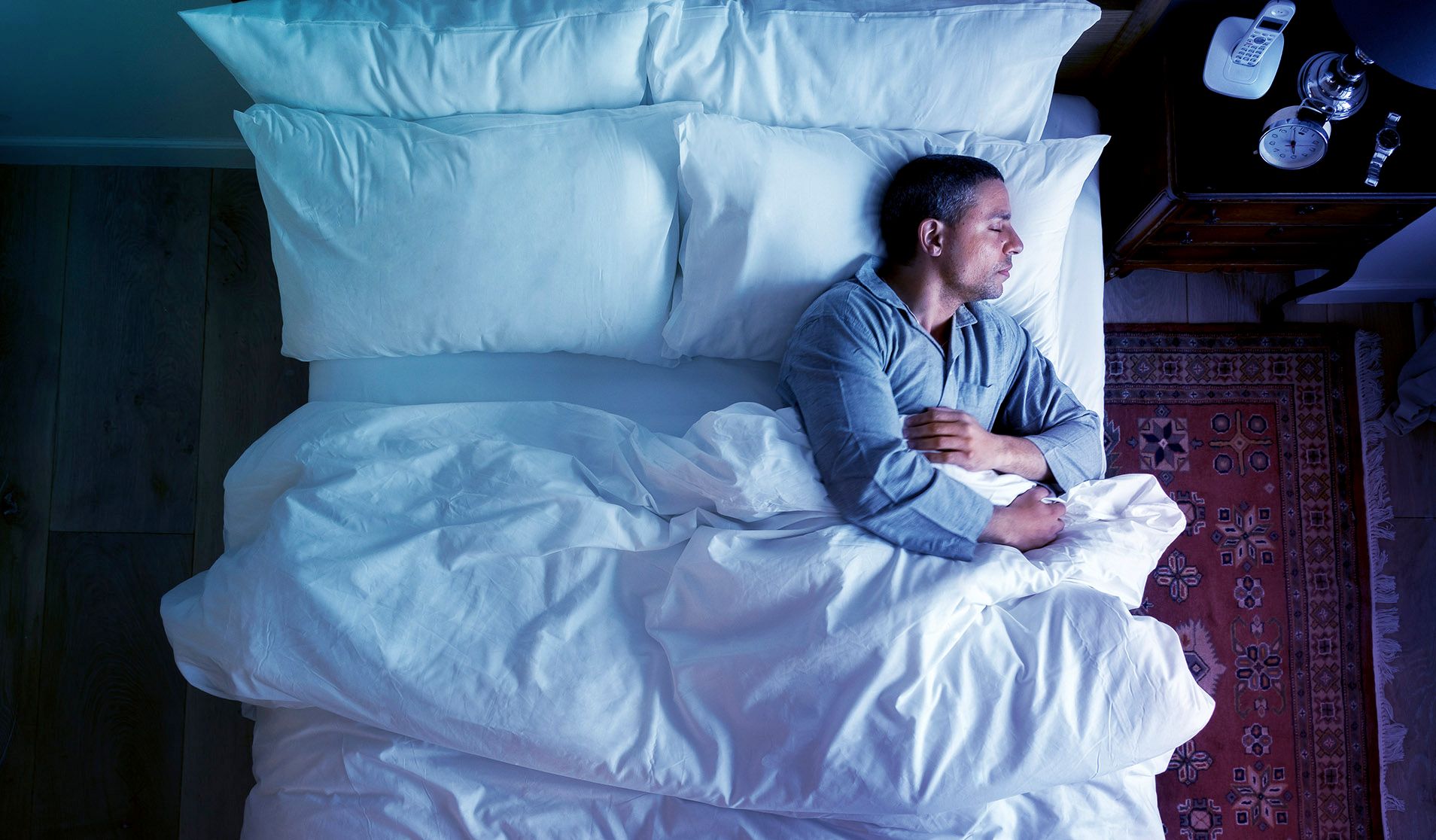NEUROSCIENCE
When Sleep Becomes A Problem
Dr Mark Atkinson

Why Sleep is the Foundation of Healthy Life
What happens to you when you have 2 or more nights of disrupted sleep or inadequate sleep? Take a moment to reflect on this before proceeding. What happens to your energy? The way you react to situations and people? What happens to your decisions, including food choices? If we are honest with ourselves, it’s plain to see. Sleep deprivation leads to negative consequences especially if chronic. Read through the following list and identify which apply to you.
Cognitive Impairment:
Sleep deprivation can lead to decreased alertness, impaired memory, reduced cognitive function, slower thought processes, and decreased problem-solving abilities. Longer-term sleep deprivation is associated with an increased risk of dementia. How do most people compensate for sleep-induced cognitive impairment? They use stimulants, particularly caffeine and nicotine. Do you?
Mood:
Have you noticed that even missing one or two nights of sleep can make you feel more irritable, agitated, impatient, low and/or stressed? Chronic sleep deprivation is linked to mental health issues like depression and anxiety. It can exacerbate stress and negatively impact overall emotional well-being.
It’s quite common to be more agitated, impatient and reactive when tired. Have you noticed this? What happens to your inner sense of calm and balance when you are tired?

Cardiovascular Health:
Poor sleep has been associated with higher risks of hypertension, heart disease, stroke, and coronary artery disease. It can affect heart rate, blood pressure, and inflammation, the drivers of cardiovascular disease.
Why does this happen? Think about what happens to your food and lifestyle choices when you are tired. For some, sugar, ultra-processed foods, fatty foods and carbs all become more appealing. Combine that with a reduced likelihood of exercise, increased stress levels and the direct link between sleep deprivation and inflammation. Chronic sleep deprivation hurts your heart.
Weight Gain and Metabolic Syndrome:
Lack of sleep can disrupt the hormones that regulate appetite (ghrelin and leptin), leading to increased hunger and appetite, often resulting in weight gain. It's also linked to a higher risk of developing prediabetes, type 2 diabetes and metabolic syndrome. We are more likely to binge eat, overeat and eat foods that we experience as satiating when we are tired. What are your go-to foods?
Immune Function:
Sleep is crucial for the normal functioning of the immune system. Insufficient sleep can impair the body's ability to fight infections and may prolong recovery times from illness.
Have you noticed you are more likely to get a cold when you are tired?

Endocrine Disorders:
Hormonal imbalances can result from disrupted sleep, affecting various hormones including cortisol, insulin, growth hormones, and sex hormones.
The hormones of your body (and the systems that control them) are a highly coordinated, interconnected, dynamic living web that is constantly adapting to the demands placed upon it. Chronic sleep deprivation increases cortisol levels and disrupts the cortisol patterns, increases insulin resistance (blood glucose levels of up), disrupts the balance of estrogen and progesterone, reduces testosterone and increases hunger hormones. Sleep deprivation drives hormone imbalances. You get the idea.
Decreased Libido and Fertility Issues:
Poor sleep can lead to decreased libido and potentially contribute to fertility problems, as sleep has a significant impact on hormone production and regulation.
Research has shown that a short duration of sleep may lead to irregular menstruation and affect a woman's fertility.
Risk of Accidents:
Sleep deprivation increases the risk of accidents due to decreased alertness and impaired reaction times. The Royal Society for the Prevention of Accidents (ROSPA) states driver fatigue may be a contributory factor in up to 20% of road accidents, and up to one-quarter of fatal and serious accidents. The take-home message: do not drive when you are tired. And if you ‘have’ to drive, take regular breaks and strategically use caffeine.

Longevity: Lack of sleep has been shown to increase the risk of premature mortality. In a review of sleep-related surveys, it was concluded that individuals who slept for less than six hours each night had a tenfold greater risk of premature mortality than those who obtained seven to nine hours of sleep.
By now I hope you are convinced about the risks associated with not getting at least 7 hours of quality sleep a night. Now let's take a brief look at what sleep is and what happens whilst we sleep.
Keep reading about sleep in Why Do We Sleep?
DISCLAIMER
This content is for informational and educational purposes only. It is not intended to provide medical advice or to take the place of such advice or treatment from a personal physician. All readers/viewers of this content are advised to consult their doctors or qualified health professionals regarding specific health questions. Neither the author or Sens.ai, the publisher of this content takes responsibility for possible health consequences of any person or persons reading or following the information in this educational content. All viewers of this content, especially those taking prescription or over-the-counter medications, should consult their physicians before beginning any nutrition, supplement or lifestyle program.